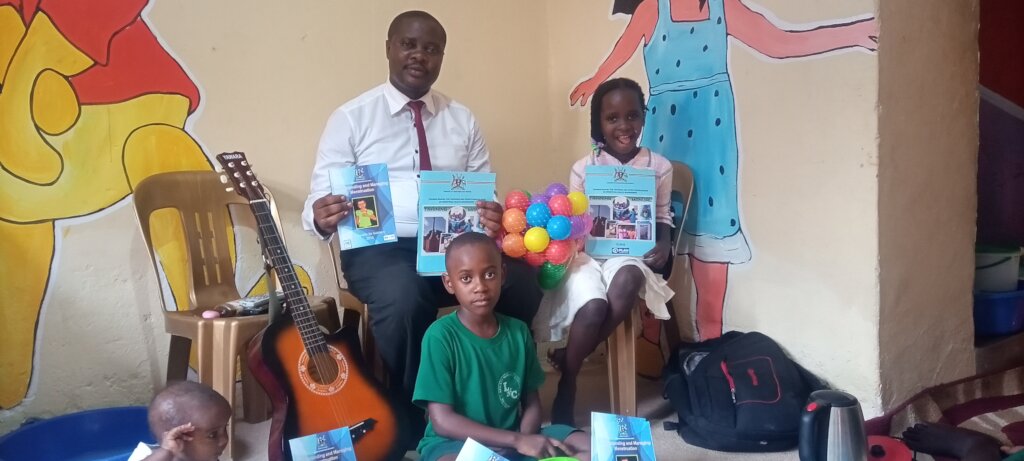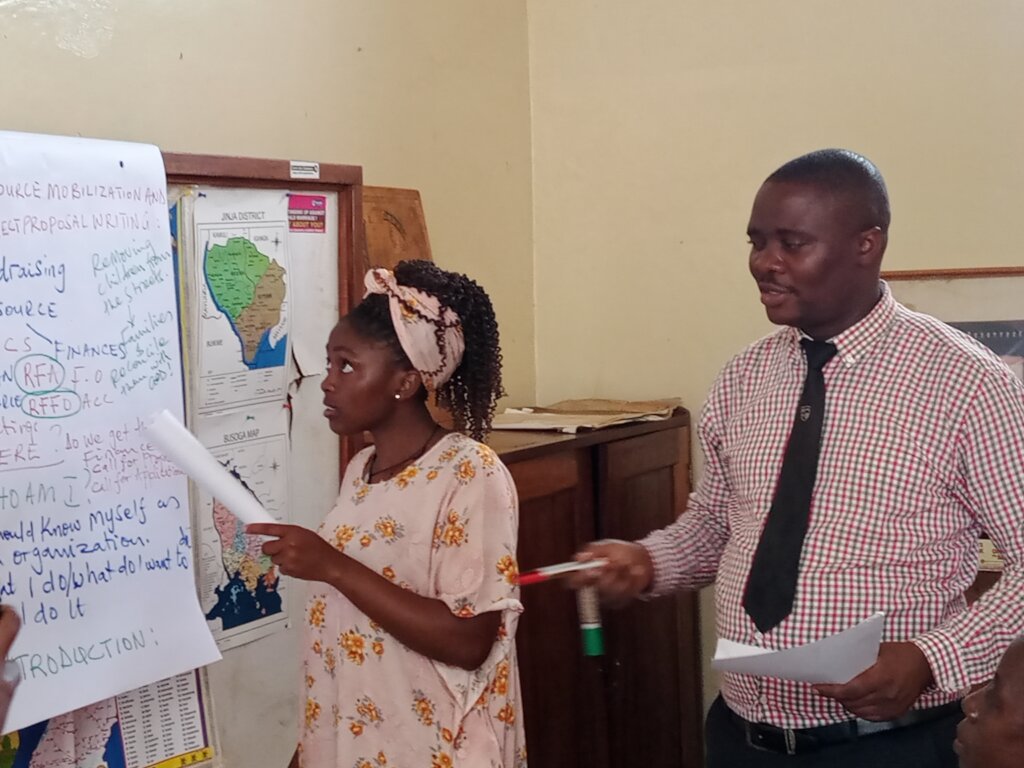By Kikonyogo Robert | Executive Director
Summary:
The project aims at giving adolescent girls and young women in Buvuma islands an opportunity to take a full part in education and work without being limited by menstruation. The project works in Partnership with a private sectors and civil society organisation in the region to improve access of hygienically affordable pads for the women and adolescent girls. Additionally, men and boys have also been trained in MHM so that they assist the AGYW instead of bulling them. African Child & Youth Development Initiative (ACYDI) conducted follow-ups and reskilled the library staff in the library management and information sharing. Our team visited the library beneficiary schools in Buvuma islands. ACYDI distributed Menstrual Hygiene Management (MHM) Manuals to all the participants and beneficiaries. The learning materials include but not limited to Menstrual health readers’ manuals, Adolescents and Growth in series books as well as early childhood books. These are part of their library and can be accessed whenever the pupils need them. The availability and accessibility of the library services in Buvuma islands has increased access to information on human growth process, menstruation, wetdreaming for boys and how all these are managed to reduce embarrassment that would lead to school dropout and frequent absenteeism thus improving the learner's performance since they can concentrate in class.
Achievements/Actions taken:
1) MHM trainings have been conducted to empower many adolescent girls and young women (AGYW) in Buvuma islands to have improved knowledge about their bodies, especially in relation to menstruation, sexual and reproductive health. Menstruation is treated with silence and as a taboo topic with menstrual blood viewed as unclean and harmful, which limits women’s and adolescent girls’ access to relevant and important information about their bodies. In schools, there is usually a lack of physiological education. This is often attributed to predominantly male science teachers feeling uncomfortable about teaching such a subject, especially if they have not received formal training in how to do so. At home, advice (traditionally given by aunts and grandmothers) is often insufficient.
2) The taboo related loss of confidence among girls has had direct impact on girl’s exposure to risks such as early pregnancy, marriage and HIV AIDS. In schools, there is usually a lack of physiological education while at home, advice (traditionally given by aunts and grandmothers) is often insufficient. Therefore, this project is compelling as it seeks to bridge the gap that exists in limited knowledge about the biological process of menstruation among the girls and women.
3) Over 20 members of Village Health Teams/VHTs (Voluntary Health Workers/VHTs from the villages) have been trained to raise awareness among girls and women in 10 villages.
4) Followed up and reskilled 25 Adolescents (15F:10M) from the school's health club on Menstrual health management and support and reminded of their responsibilities in supporting their colleagues to avoid embarrassment, encourage them to remain in school and to also cascade the information to their homes.
5) The library staff have also received re-training in library management, the capacity building was conducted to 5 staff (3 from the school and 2 from the community) who were trained on library and information basics to support the end-users in the school and community respectively.
Challenges and suggested solutions:
• Generally, the taboos associated with menstruation have ultimately led to reduced levels of confidence and active involvement of girls in schools (Buvuma islands).
• It is due to lack of resources, many Buvuma island schools do not have adequate toilet facilities to serve the pupils studying. Where toilet facility is limited, students are forced to wait in long lines outside the toilet, which creates a constant disruption in the class and a less-focused learning environment. However, due to limited facility and the need for excessive use and sharing of the same latrine(s) by many students, it overflows. This creates pollution and the smell emitted from the disorder of latrines is distracting the students from getting their education. Furthermore, students need to wander out into the forest (or open field) to relieve themselves.
• The number of class attendance fluctuates greatly due to failing health of the students, which has direct correlation to the lacking of toilet and sanitation facilities.
• Even in schools with existing pit latrine (or crude form of toilet), basic water & sanitation facility is lacking, resulting in the dirty and unhealthy situation.
• As school is the place where students spend most of their time during day light, facilities like toilet, safe sanitation, drinking water, playground etc. should be ensured in the school compound.
• The girl students are the most affected, as they are vulnerable through their health as well as socially. Additionally, because of lack of proper toilet facility, girl students (when they reach the age of puberty) do not come to class during their monthly menstruation period, and gradually drop-out from school.
• The training was conducted; resource mobilization and fundraising was part of the modules that was facilitated by African Child & Youth Development Initiative (ACYDI) where 10 men, 15 AGYW and 10 boys had participated. According to the available data, a recent survey by African Child & Youth Development Initiative (ACYDI) in Buvuma islands showed that 38 percent of girls don't attend school when they are having a period. In addition, almost 15 percent of these personally know a girl that has left school due to a lack of Menstrual Hygiene Management. But at least 56 percent of the girls said that they also don't go to school because there are no decent facilities (water, toilets, wash house), and so they are worried and embarrassed about leaking. Additionally, the damage extends beyond that because various studies show that girls with a school education are the very ones with the key to breaking the spiral of poverty.
Project reports on GlobalGiving are posted directly to globalgiving.org by Project Leaders as they are completed, generally every 3-4 months. To protect the integrity of these documents, GlobalGiving does not alter them; therefore you may find some language or formatting issues.
If you donate to this project or have donated to this project, you can recieve an email when this project posts a report. You can also subscribe for reports without donating.
Support this important cause by creating a personalized fundraising page.
Start a Fundraiser
